Today’s ephemera: Dinosaurs are like the coolest thing possible



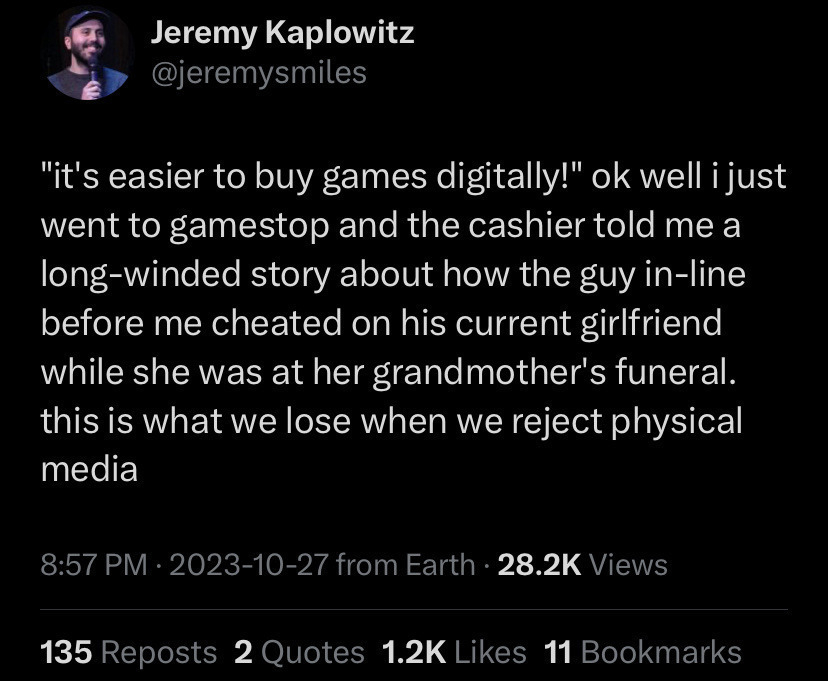



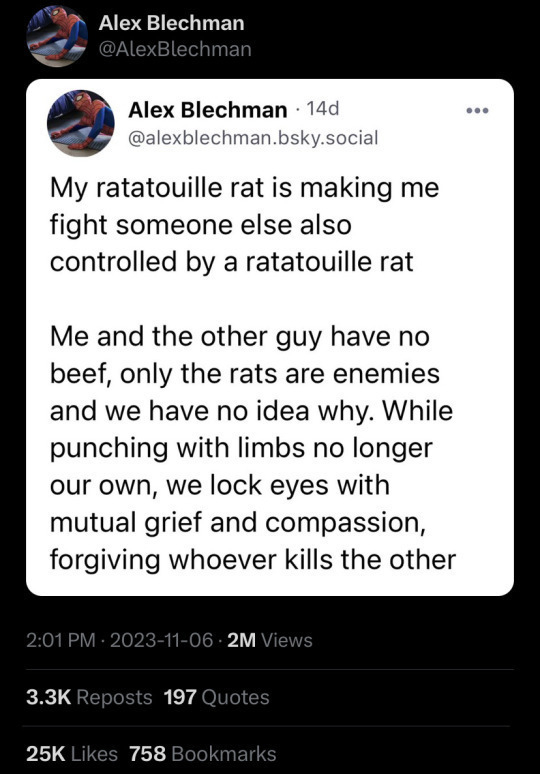
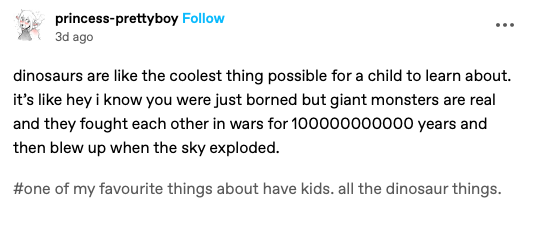


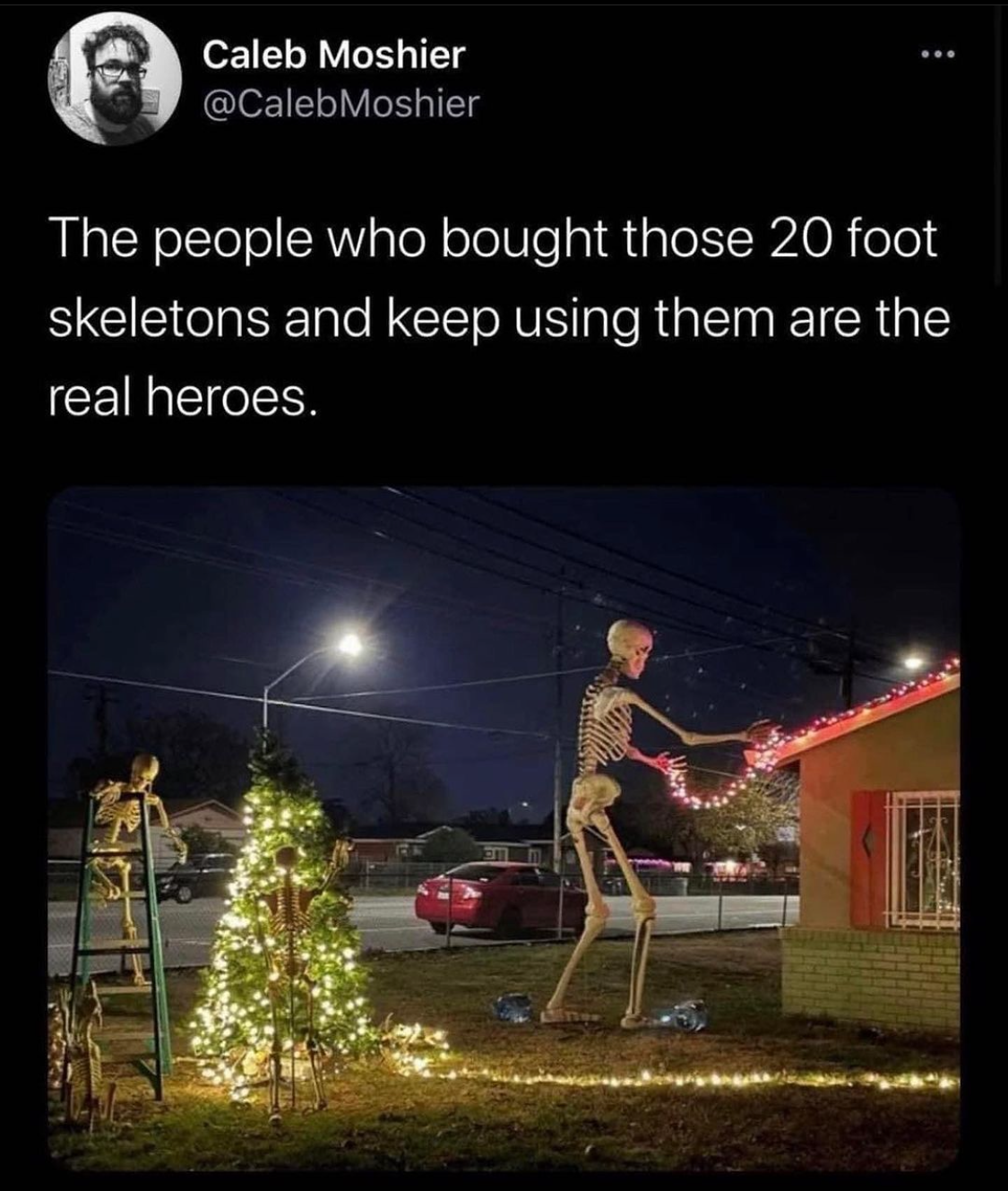



A surprisingly moving profile of Geddy Lee. “… in the era of headbanging and ‘Cat Scratch Fever,’ they were singing 11-minute songs inspired by the epic poetry of Samuel Taylor Coleridge.” There was never a band like Rush. Geddy Lee doesn’t want to forget it.
A researcher identified the man on the cover of Led Zeppelin IV, 50 years after the album’s release. The man was a thatcher named Lot Long, and the album cover is based on a found photograph from the Victorian era. The photographer was named Ernest Farmer, now the subject of an English museum exhibition. Long lived 1823-1893. Researcher Brian Edwards, who discovered the photo, has been listening to the album since it came out more than 50 years ago.
In the movie “Fast Times at Ridgemont High,” a character recommends a specific track from Led Zeppelin IV as make-out music, but when the big make-out scene comes around, the music on the soundtrack is Kashmir, from another Zeppelin album.
Britain’s ‘loneliest sheep’ was rescued after two years at the foot of cliff. “The ‘over-fat’ ewe, named Fiona, was hauled up from her solitary spot on a remote Scottish beach by farmers.” She had a “huge fleece.”
A kayaker spotted the sheep, which followed her along the riverbank, calling out the whole time. The kayaker described the experience as “heart-rending.”
Jezebel: Feminist media site shuts down after 16 years.
Jezebel was a great site that “pioneered the sharp, dishy coverage that came to characterise many digital upstarts.”
Tough day for online pioneers yesterday. Tumblr is scaling back drastically, and Nextdoor is also laying off a lot of people.
When they wear the hats it’s in a dramatic scene and rather than focusing on the emotional action and dialogue I’m just thinking what is that on their head?
Marvel TV shows and movies need to get rid of the ridiculous headgear. The costumes are fine but the silly hats have got to go.
Tonight‘s TV choices: Season finale of “Loki,” season debut of “For all Mankind,” final two episodes of the season of “Bosch” and a new episode of “Lessons in Chemistry.” Tough decision!
I’m grateful to the Automattic team for keeping Tumblr running and being good custodians of the community. Today’s announcement is sad news, but I’m hopeful Tumblr will succeed many years with its new, more focused mission.















This runner finished last at the NYC Marathon. He feels ‘blessed.’.
Of course he should be proud. He finished the damn thing. He came in 51,258th place.
Also, today I learned there are people who walk marathons. Might be something I should do sometime.
No, Grammarly, “fertile AI” is not a better way to say “generative AI.”
El Cajon Mayor Urges the ‘Immediate Shutdown’ of Border to Palestinians.
Racists gotta racist.
A guide for visiting journalists on how to write a San Francisco “doom loop” story:
You’re here to write the millionth story about the San Francisco doom loop, the much publicized (including at least 100 times by the Chronicle) and hotly debated theory that a city that endured proudly through the 1906 earthquake and fire, AIDS crisis, Zodiac killer, one tech boom-and-bust and the band Starship will be completely undone by … high commercial vacancy rates.”


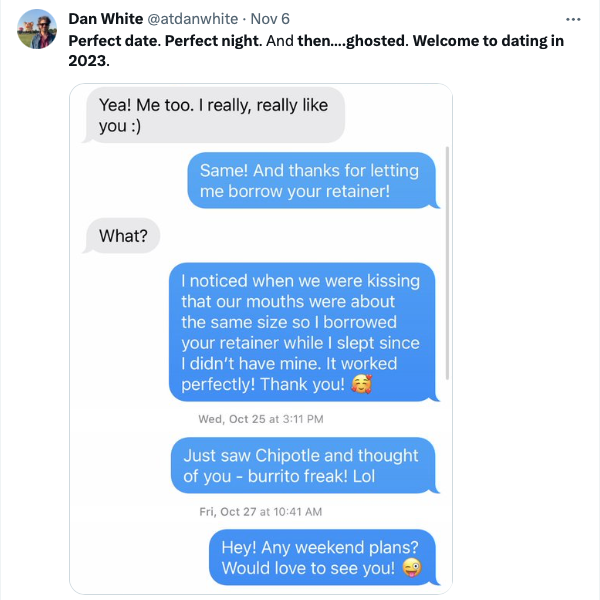
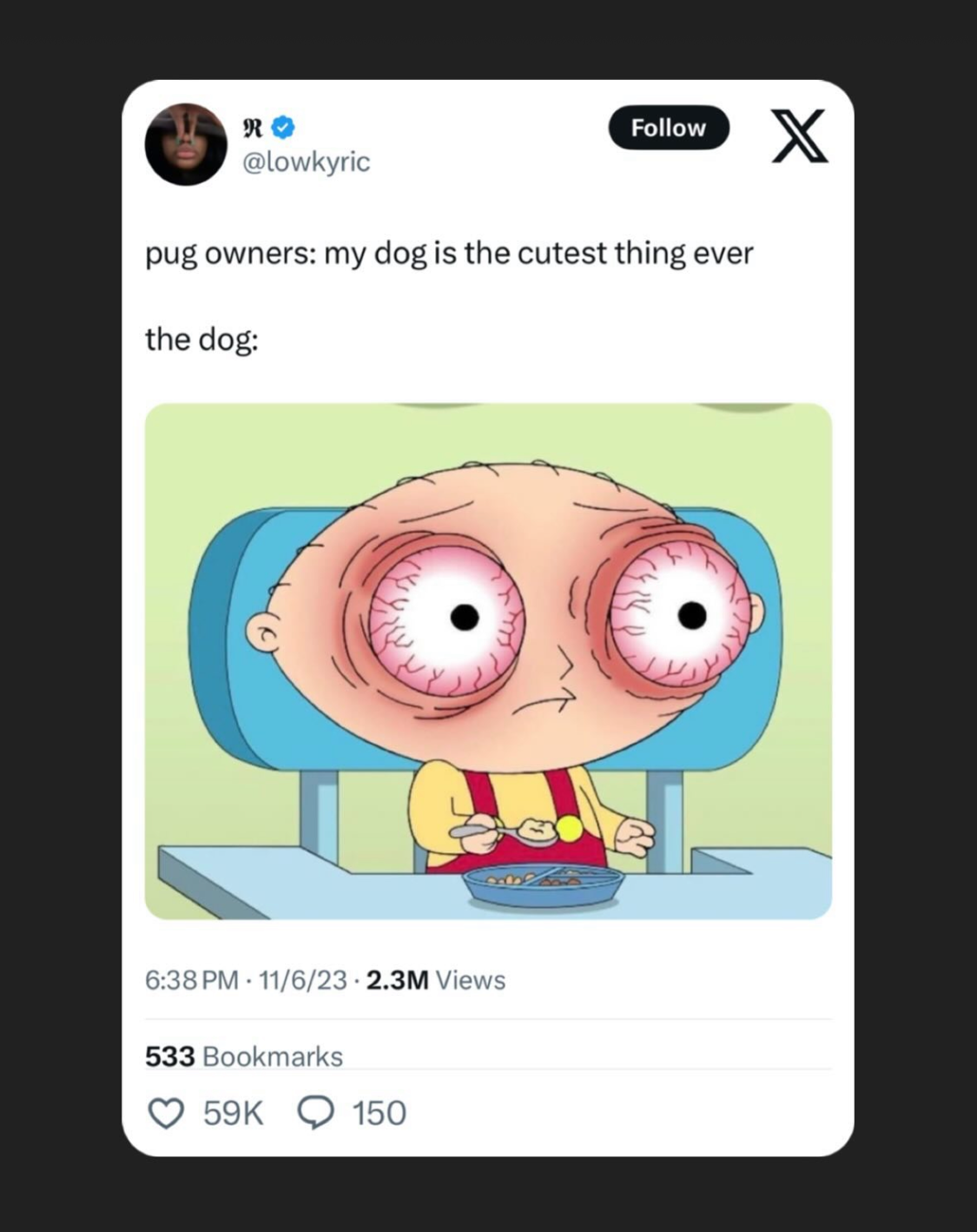

Greatest TV Guide review ever.

Bette Davis on set of THE LETTER (1940)
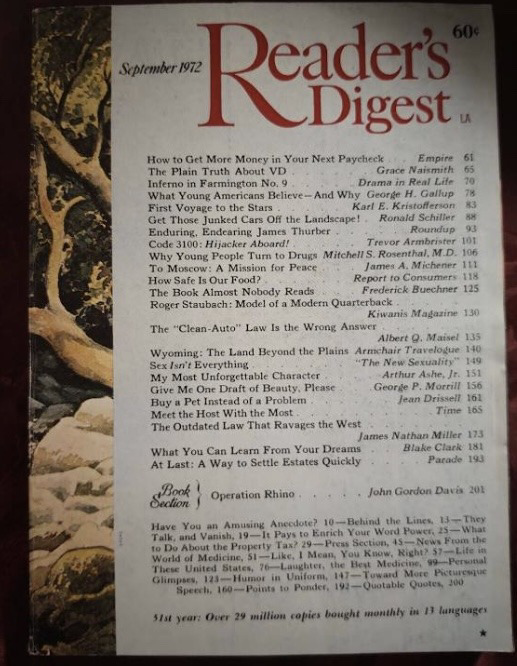
I would not say I have “sensory processing issues” (autism, PTSD—I probably do have ADHD) but yesterday I was at the supermarket and the ambient music was annoying. Also, I hate that waiting rooms now have TVs playing at all times. So Walmart’s sensory-friendly hours sound good to me.
I just did a rough tally of our monthly streaming video and cable bill.

Minnie wants you to know you’re awesome and she hopes you’re as comfortable as she is.

Food insecurity on the rise. 10% of California households can’t afford to buy enough food for everybody. Nationwide, that number is 11%. That’s unacceptable.
I have seen no policy or legislative proposals from No Labels. It’s all a bunch of handwaving about centrism and bipartisanship.
The timelessness of the Meg Ryan rom-com era. Meg Ryan’s latest film, “What Happens Later,” “recalls the Nora Ephron classics that defined the genre.”
New Meg Ryan romcom co-starring David Duchovny? Sure, why not?
How do I stop the “Start your day?” notifications every morning on Apple Watch? They are annoying.
Jason Parham at Wired: “The internet promised us access, but I didn’t realize the totality of what that meant. It meant always being plugged in, available, in the know and up to date on what’s trending. That is a requirement of time that I no longer wish to give over.”